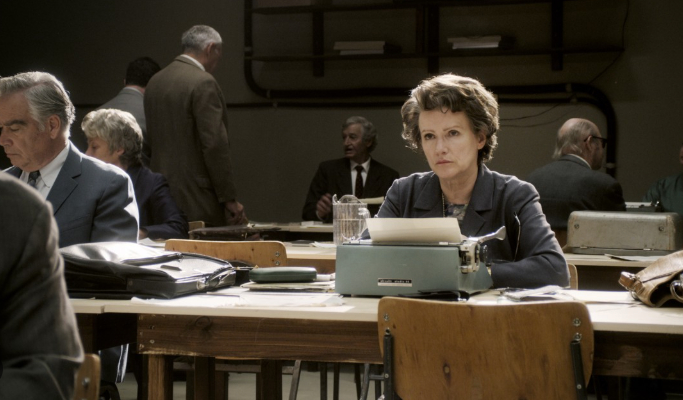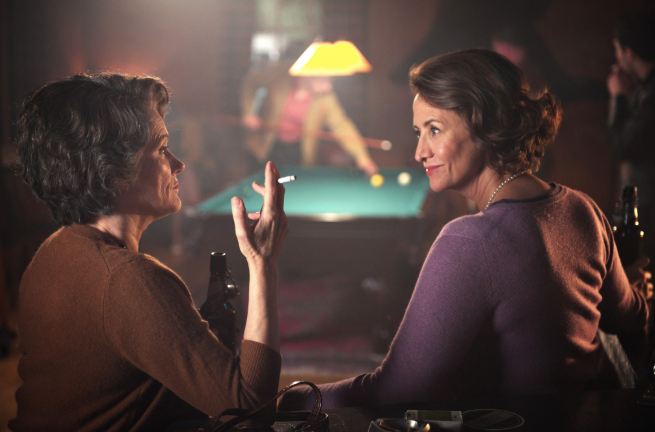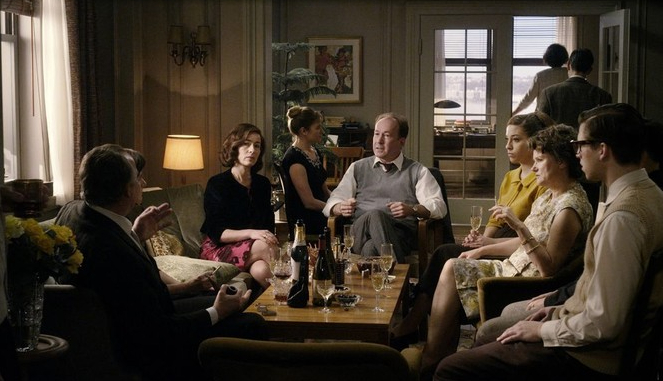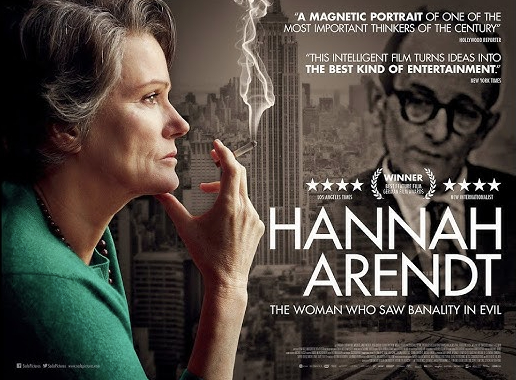Hannah Arendt (2012)
Hannah Arendt is a 2012 German biographical drama directed by Margarethe von Trotta and starring Barbara Sukowa in the titular role. The film dramatizes a critical period in the life of the famed German-Jewish philosopher, focusing on her controversial coverage of Adolf Eichmann’s 1961 trial and the publication of her landmark concept: “the banality of evil.” Balancing intellectual rigor with emotional undercurrents, the film is both a political drama and a portrait of a thinker confronting a world unwilling to think.
Plot Summary
The narrative begins in 1960, when Israeli intelligence captures Nazi war criminal Adolf Eichmann and puts him on trial in Jerusalem. Arendt, already a renowned political theorist living in New York and teaching at The New School, proposes to report on the trial for The New Yorker. Her decision shocks some of her colleagues, and her insistence on approaching the trial with intellectual distance rather than emotional outrage draws criticism from her Jewish peers.

As Arendt travels to Jerusalem and watches Eichmann testify, she is stunned—not by monstrous villainy, but by his ordinariness. A bureaucrat, a man who followed orders without question. Her published articles ignite a firestorm: she is accused of being heartless, of blaming the Jewish councils for cooperating with the Nazis, and of misunderstanding evil itself.
The film captures the personal and professional fallout Arendt faces, from fractured friendships to academic censure. But it also reveals her unwavering belief in independent thought, moral responsibility, and philosophical courage.
Direction & Cinematic Style
Margarethe von Trotta approaches the subject matter with restraint and precision. The film doesn’t sensationalize the Eichmann trial; instead, it filters the courtroom proceedings through Arendt’s gaze, often using archival footage to anchor the drama in historical reality.

The cinematography is unflashy but carefully composed. Scenes of Arendt smoking contemplatively in her study are juxtaposed with harsh editorial meetings and public outrage. The muted color palette — grays, browns, and cold blues — reflects both the post-war moral climate and Arendt’s intellectual austerity.
The film moves slowly, with long scenes of dialogue, debate, and philosophical reflection. It’s not a biopic in the conventional sense, but a dramatized argument — one that asks the audience not just to watch, but to think.
Characters & Performances
Barbara Sukowa as Hannah Arendt
Sukowa delivers a tour de force performance. Her Arendt is cerebral but passionate, sharp yet emotionally guarded. Sukowa captures the philosopher’s inner fire — her conviction that thinking, even in solitude, is a political act. She embodies the paradox of Arendt: emotionally distant yet morally engaged, iconoclastic yet loyal to truth.
Axel Milberg as Heinrich Blücher
As Arendt’s husband, Milberg brings warmth and wry humor to a role that acts as both anchor and mirror. Their relationship is one of equals, and his presence reveals a more tender, human side of the philosopher.

Janet McTeer as Mary McCarthy
As Arendt’s close friend and fellow intellectual, McTeer offers lively support and unapologetic sarcasm. Their friendship becomes a lifeline as public backlash threatens to isolate Arendt completely.
Themes & Symbolism
The central theme is the danger of unthinking obedience. Arendt’s controversial thesis — that evil can be committed not by fanatics but by ordinary people failing to think for themselves — challenges comfortable moral narratives. Her insistence on intellectual independence becomes both her shield and her sword.
The film also explores exile — both literal and intellectual. Arendt, a Jewish émigré, is twice displaced: from Germany by the Nazis, and from American academia by ideological hostility. Her solitude is not just physical but philosophical.
Cigarettes, used throughout the film, become a symbol of her thought process — burning quietly, slowly, stubbornly. Her study, filled with books and silence, becomes a sanctuary of rebellion against a world that demands conformity.
Strengths
- Barbara Sukowa’s intelligent, magnetic performance
- Faithful depiction of philosophical debate as cinematic drama
- Thought-provoking treatment of real historical controversy
- Effective blending of archival footage with narrative scenes
- A rare film that challenges the audience to engage intellectually
Weaknesses
- Pacing may feel slow or overly academic for viewers expecting conventional biopic structure
- Requires some prior knowledge of WWII history or political theory for full appreciation
- Emotional engagement is subdued, with the film prioritizing ideas over sentiment
- Supporting characters are mostly functional, orbiting around Arendt’s monologue
Conclusion
Hannah Arendt is not just a film about a philosopher — it is a philosophical act in itself. Refusing to cater to comfort or consensus, it challenges viewers to wrestle with moral ambiguity, with the tension between loyalty and truth, and with the obligation to think when thinking is most dangerous.

For those willing to engage with its ideas, the film offers a rich, demanding, and ultimately rewarding experience. It reminds us that the truest courage often lies not in fighting with weapons, but in defending the right to think freely — even when the world turns against you.
⭐ Final Rating: 8.5/10
Rational, radical, and deeply relevant — Hannah Arendt is a thinking person’s political drama, anchored by a fearless central performance and ideas that still ignite debate today.
#HannahArendt2012 #BarbaraSukowa #MargaretheVonTrotta #PhilosophyOnFilm #BanalityOfEvil #PoliticalDrama #HolocaustDebate #WomenThinkers #HistoricalCinema
